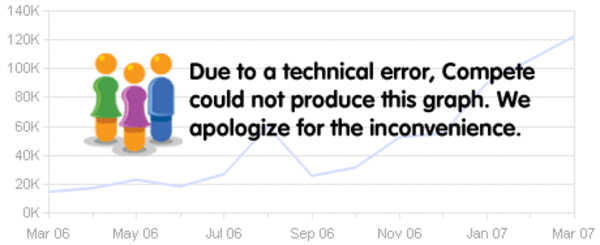Yahoo has announced that its website creation service GeoCities, which it acquired for $4.5 billion in 1999, will close later this year. Existing customers are being encouraged to “upgrade” to Yahoo! Web Hosting, which offers a site-building service and a personalized web address. The closing of GeoCities is the end of an era. Last June, we profiled the rise of “GeoCities 2.0” services, i.e. website creation tools for the Social Web. Many of them will attempt to pick up GeoCities’ customers. Although, as Yahoo! itself indicated in its closure message, website building is mostly a ‘feature’ nowadays rather than a separate product. So, is this a viable business now for the likes of Weebly and Yola?

Vinny Lingham, founder of Yola (formally SynthaSite), argues that the GeoCities closure proves that the advertising model for ‘free websites’ doesn’t work. Lingham says that premium add-on services are the key to making money in this niche now and refers to it as a “freemium” business model. He makes a strong argument that the market has changed and GeoCities simply did not keep up:
“Web users, and particularly small businesses, don’t just want an online presence (which was Geocities key value proposition), they want a professional-looking site that they can quickly and affordably build, and the tools to help themselves and/or their businesses succeed (online marketing, commerce capabilities, etc.) – and that’s what we’re about.”
Example Yola website

However, the same argument can be turned back on his business and others like it such as Weebly (a Y Combinator company), Sampa (our coverage), SiteKreator and Webon (owned by another Web 1.0 survivor, Lycos). The online presence that people and small businesses want is increasingly being provided by both web hosting companies and large Internet behemoths like Yahoo! and Google. Google has Google Sites, which evolved out of one of Google’s acquisitions, JotSpot, and is available for free both as a standalone product and as a part of Google Apps.
Not to mention, there are free blogging platforms such as WordPress.com and Google’s Blogger. Easy-to-use lifestreaming tools such as Tumblr and Soup.io are also filling many peoples website needs. Yet another type of ‘free website’ is a DIY social network like Ning.
However, as we noted in our round-up post last year, services such as Yola do target a specific type of user. They’re aimed at people who just want a regular website, for example, people who want to chronicle their wedding or holiday, families who want to track their family history and growth, or retailers who want to build a web presence.
As the chart below shows, there’s still a long way for Yola and Weebly, which appear to be the two frontrunners in this market, to catch up with GeoCities. But, it will be interesting to see how many new users they pick up now that GeoCities has dropped out.

Google Sites and the free websites provided by web hosting companies tend to be bland and not very customizable. Yola and the like are obviously hoping there is a big enough market for people to want a more professional looking and stylish web presence. So the ‘add-on’ premium service model probably does have legs. Weebly is also using the affiliate model, so it hasn’t eschewed advertising completely.
As we noted a year ago, website builder platforms in the web 2.0 era, where mashups and open data are common, typically offer ways to integrate with 3rd party apps. This can take the form of widgets, or even utilizing other sites’ APIs. This is probably the biggest difference between GeoCities 1.0 and the 2.0 era web publishing platforms. These platforms also usually offer the ability to add blogs, RSS feeds, multimedia, privacy controls, and more. For example, Webon supports the OpenSocial API “for thousands of add-ons and widgets (such as iGoogle gadgets and Google FriendConnect), with no HTML or CSS knowledge needed, as well as OpenID to enable DIY social network connections.”
Another common feature in the new website creation tools is use of Ajax to build sites. They often have rich functionality and the ability to drag n’ drop ajax widgets.
We think Yola, Weebly, and others have a good business model. Although, we also think it’s a crowded niche market, even without GeoCities, and some of these startups will inevitably fall by the wayside. For most people, the basic service that Google Sites or web hosting companies provide will be ‘good enough’. So, Weebly, Yola, and others are scrapping for the small percentage of users who want a premium quality website.

















